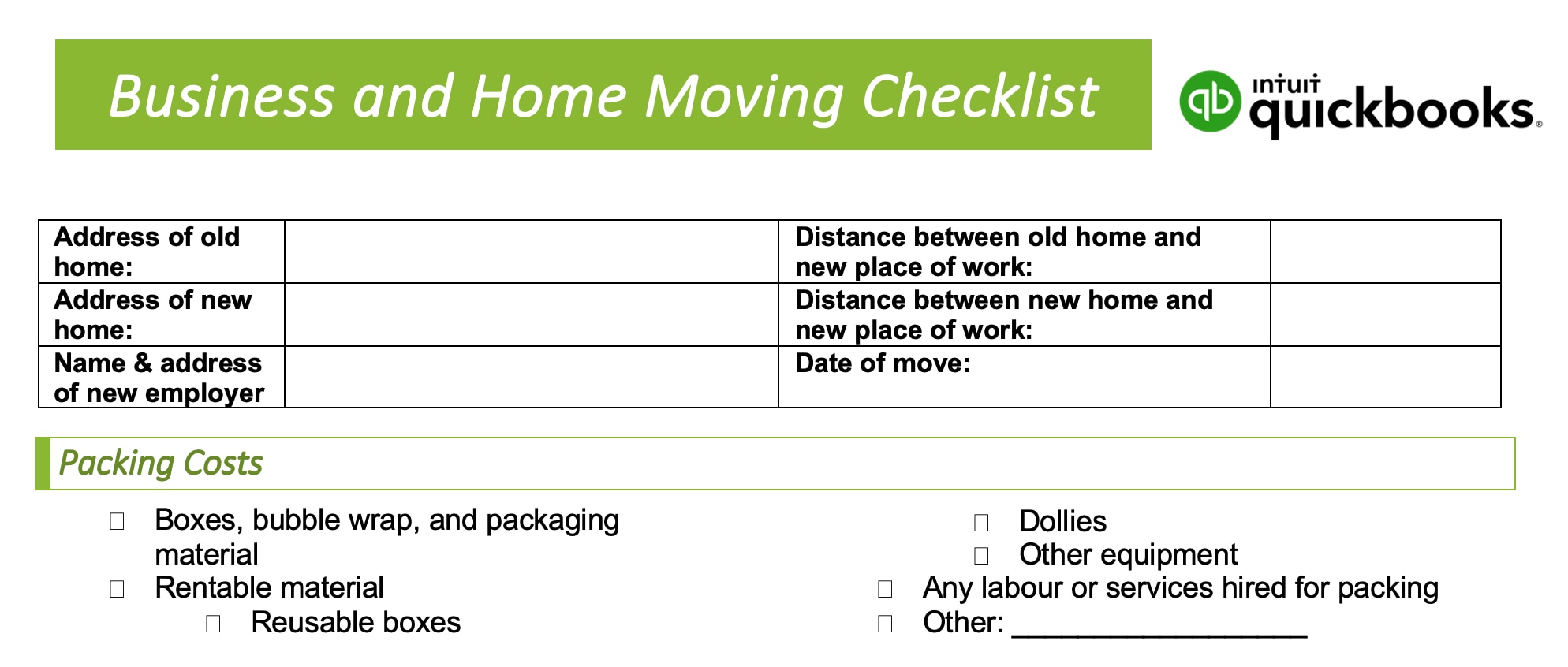List of deductible moving expenses
Business moving expenses that you are able to deduct on your income returns include:
- Transportation and travel expenses: any vehicle used to transport household items, as well as any travel costs of moving you and your household including vehicle expenses, meals, and accommodations.
- Storage costs: any in-transit storage and insurance needed to move to the new location
- Temporary living expenses: deduct a maximum of 15 days of accommodations and meal costs of you and your household whether living near the old or new home
- Lease cancellation: expense incurred from cancelling your old home’s lease to move, does not apply for any period before the cancellation of the lease
- Cost of maintenance for the old home when vacant: deduct a maximum of $5,000 covering the time when you have moved and are making reasonable efforts to sell the house, including the cost of heating and utilities, interest, property taxes, and insurance premiums
- The expense of selling your old home: covers the cost of advertising, real estate commissions, legal fees, and mortgage penalties
When claiming back these relocation expenses, you have the option to use the detailed method or the simplified method of calculation. Choosing the detailed method means calculating the actual and total amount of all associated moving costs, showing all receipts as evidence of the claim in order to deduct moving expenses at the exact amount.
For the simplified method of deductions, you can claim meal expenses as a flat rate per person, without providing detailed receipts as evidence. However, the CRA may still ask for the receipts as supporting documentation for the claim, so it is best to hold on to them.
To claim vehicle expenses using the simplified method, multiply the number of kilometres driven by the cents/km rate from the province or territory where you began your move. Again, the CRA has the right to ask for any evidence to back up these claims, so keep all of your moving receipts safe.



